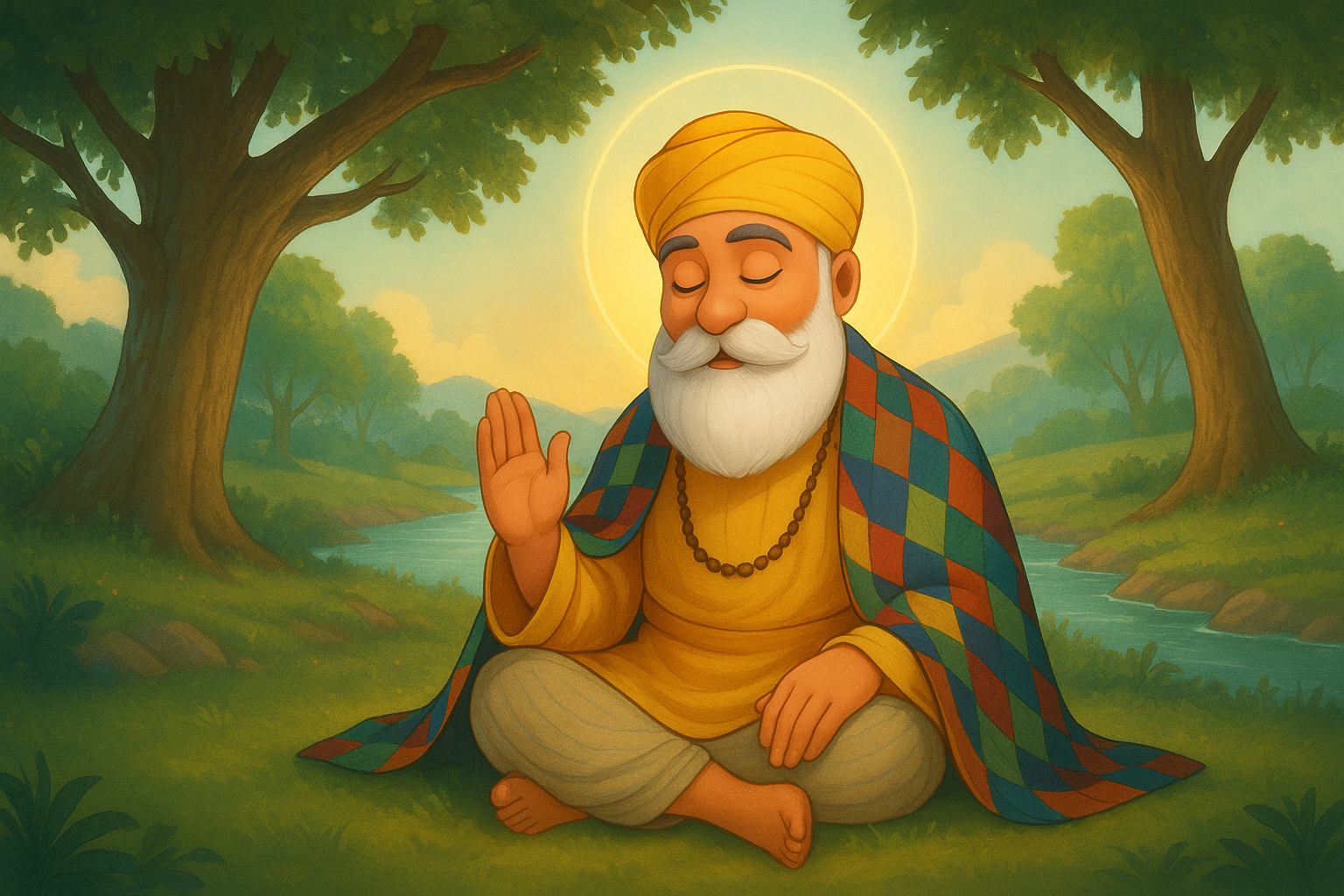In 1469, in the village of Talwandi near Lahore (now in Pakistan), a child was born beneath a sky of quiet wonder. He did not cry — he gazed. His eyes held stillness, as if they already knew the secret rhythm of the universe.
They named him Nanak. The world would one day call him Guru Nanak Dev Ji — the founder of Sikhism and the first of the Ten Gurus.
A Different Child
From childhood, Nanak questioned rituals and divisions. While other children played, he sat by rivers lost in silence. In school, he asked teachers simple questions that shook complex minds.
One day, when asked to recite mathematical tables, he replied:
“If there is One God in all, then why do we divide?”
He saw no Hindu, no Muslim — only One Creator. His family worried he was too lost in God to live in the world. But Nanak was not escaping life — he was preparing to illuminate it.
The Divine Disappearance
At age 30, while bathing in the Bein River, Nanak disappeared. People searched for days. They thought he had drowned — but on the third day, he returned.
His first words shook the world:
“Na koi Hindu, na koi Musalman — all are children of the One.”
“There is no Hindu, no Muslim — all are one.”
He had experienced Ek Onkar — the truth of One Universal Light.
The Journey Begins
He left home to wander — not to escape life, but to teach it. With his companion Bhai Mardana, a Muslim musician, he traveled over 28 years — to Tibet, Bengal, Mecca, Baghdad, Punjab.
He carried no sword, only truth.
He built no temple, only hearts.
He converted no one, but transformed millions.
“Vand Chakko — share what you earn.”
“Kirat Karo — work honestly.”
“Naam Japo — remember God with every breath.”
The Rebel of Love
He spoke against blind ritual, injustice, and pride. Kings and peasants sat equally before him.
He stopped a corrupt ritual at Haridwar and reminded people: “God is not in the water you throw — He is in the hands you can feed.”
At Mecca, he slept with his feet toward the Kaaba. When rebuked, he said, “Turn my feet — show me a place where God is not.”
In the court of Babur, he spoke fearlessly of oppression: “When power oppresses, truth must speak.”
Building a Path
In Kartarpur, he built a simple community of equality — Langar (free kitchen) fed all, regardless of caste or creed. He did not preach religion — he taught humanity.
He gave the world the Mool Mantar — the heart of Sikh wisdom:
“Ik Onkar — God is One”
The Final Light
Before leaving his body in 1539, he passed his spiritual light to Guru Angad — beginning the guru tradition. When asked Hindu or Muslim rites for his funeral, he smiled:
“Let flowers decide. Place Hindu flowers on one side, Muslim flowers on the other. Whichever stays fresh, follow those rites.”
By dawn, his body was gone — only flowers remained.
The Legacy
Guru Nanak gave the world no monuments — but gave us a way to live:
See God in all
Earn honestly
Share generously
Fear no one
Hate no one
He did not build a throne. He built a path — the path of truth, love, and Oneness.
“Walk in truth, and truth will walk with you.”
